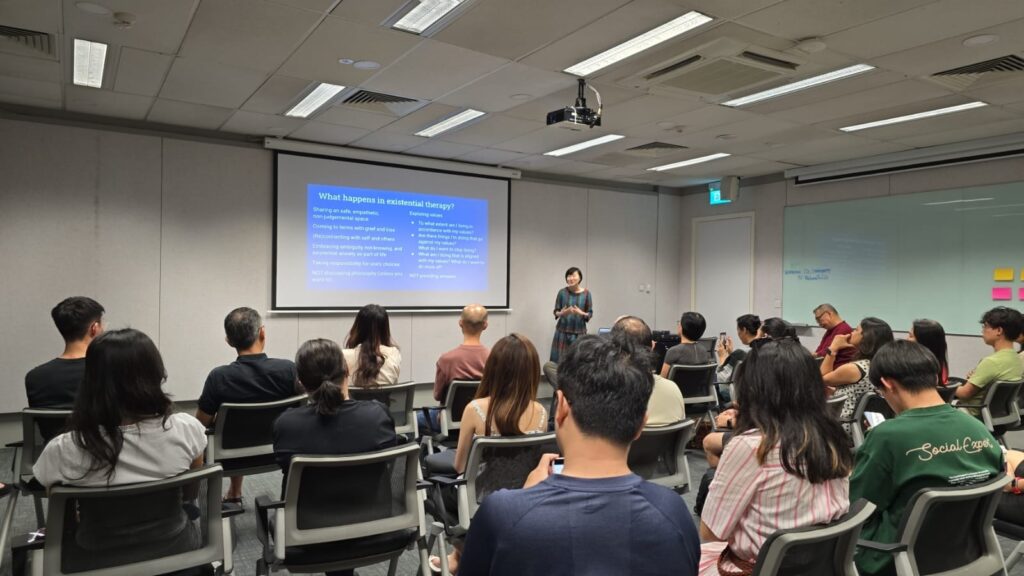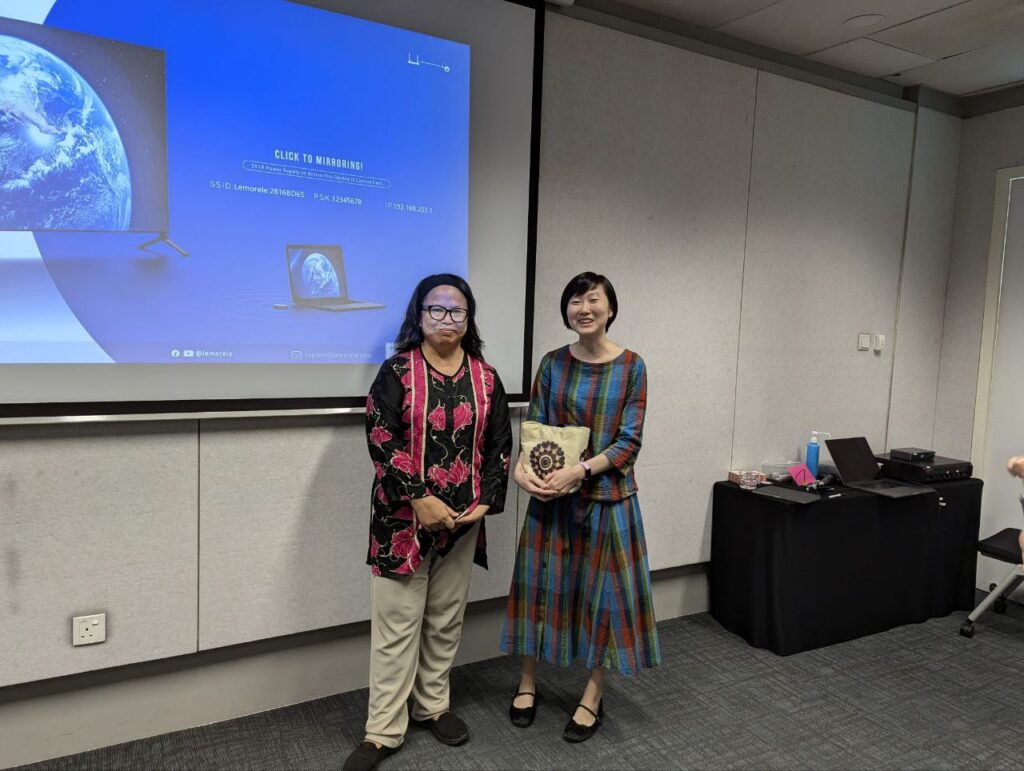Building on the insightful dialogue from last Conversation on Humanism series on irreligiosity and mental health,We were grateful to have Ms Deborah Koh from North Ship Counselling facilitate a deeply enriching and well-attended session on Existential Therapy.
She opened the conversation with a question many of us may have asked—often half-jokingly: “What is an existential crisis?”
Ms Koh helped unpack the real meaning behind the term, linking it to life-altering events such as the loss of a loved one, a serious illness, or rejection by one’s religious community, especially in relation to sexuality or gender identity.
Unresolved emotions and persistent questions like “Why is life unfair?” or “What happens after we die?” can all contribute to existential distress.

Ms Koh introduced Yalom’s Existential Psychotherapy (1980) and reflected on two local studies examining the link between religion and mental health:
- Religiosity, Religious Coping and Distress Among Outpatients with Psychosis in Singapore (2022)
- Religious Affiliation in Relation to Positive Mental Health and Mental Disorders in a Multi-Ethnic Asian Population (2021)
These studies sparked a thought-provoking question: “Are humanists doomed?”—prompting us to reflect on whether religion is necessary to make sense of life’s struggles.
Ms Koh shared insights from Viktor E. Frankl’s book, Man’s Search for Meaning (1946), a moving account by a Jewish psychiatrist who survived Auschwitz. Frankl observed that survivors were not necessarily the strongest, but those who had a sense of purpose and meaning—a reason to live even in the face of suffering.
She then explained what existential therapy entails:
- Creating a safe, empathetic, and non-judgemental space
- Coming to terms with grief, loss, and uncertainty
- Reconnecting with oneself and others
- Embracing ambiguity and existential anxiety as part of life
- Taking responsibility for personal choices
Philosophy is not a requirement in therapy, she noted—“unless you want to talk about it!”
Values are central to the process. Participants were encouraged to reflect on:
- Am I living in accordance with my values?
- What do I want to stop doing?
- What do I want to do more of?

Ms Koh emphasized that existential therapy can support individuals facing:
- Divorce, illness, bereavement
- Career transitions, ageing, retirement
- Addiction, anxiety, depression, trauma
- Loss of motivation or identity
- And crises of faith or community disconnection
The ultimate aim? To live with authenticity—and to learn to “live the questions.”
The session concluded with a reflective activity where participants considered their personal values and how to express them through value-driven actions. A thoughtful Q&A session followed, with Ms Koh patiently addressing participants’ questions.
It was a powerful, informative, and affirming evening—reminding us all that seeking help is never a sign of weakness, but a courageous step toward healing.




